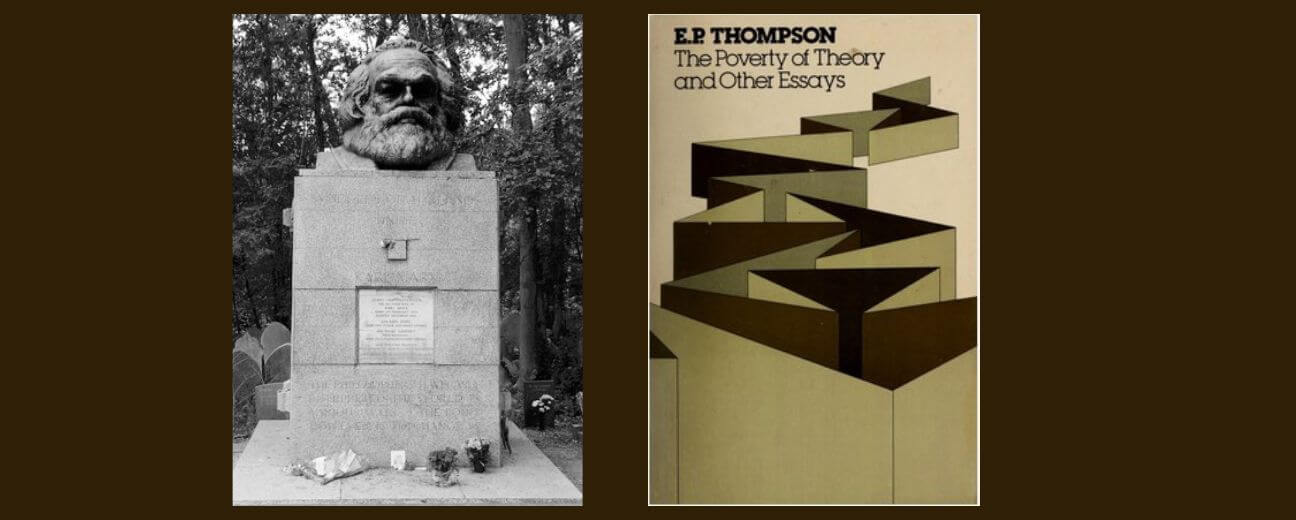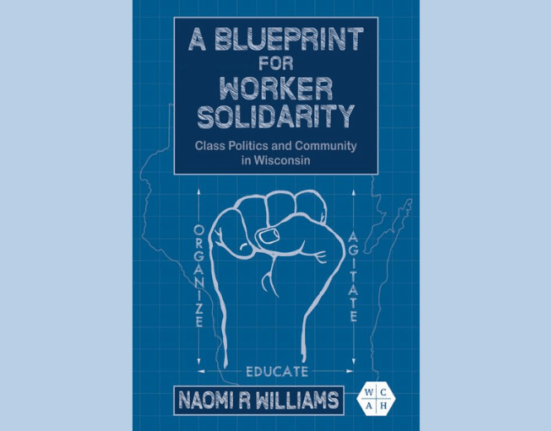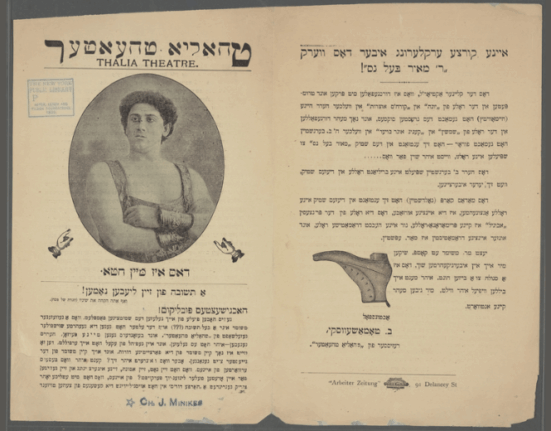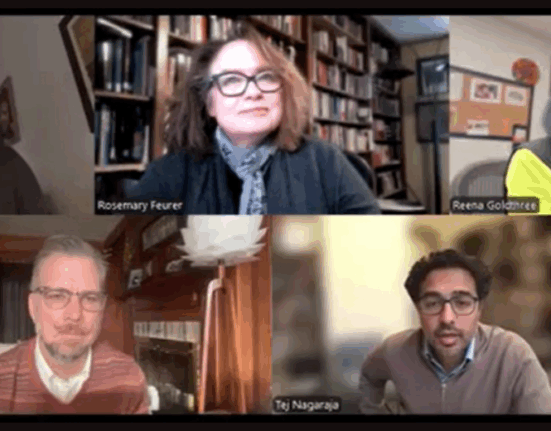I read the recent report on the Business History Conference by Michael Hilliard and Chad Pearson with great interest. I count myself among the business/labor history overlap that the report centers on (and I remain grateful for what I learned when I took part in the BHC’s doctoral colloquium as a graduate student). The report tipped me into writing up some thoughts that have been on my mind for quite a while in mostly inchoate form, in part because of some critical comments by some conference attendees – that it doesn’t matter if people identify as labor historians or not, that labor history is mostly for romantic radicals, and that political economy is only really of interest to Marxists – and in part because of a bit of editorializing in the report, namely that there is a “wide presence of liberalism in the academy, including among labor historians.” I’m not interested in litigating these specific remarks though I will return to them briefly at the end. For now, I take them as evidence that it’s worth talking about something that I’m personally preoccupied with, which is the relationship between Marxism and labor history, specifically labor history in the United States. (I admit I’m speculating somewhat here, as I’m talking about fairly vast bodies of literature and like everyone, certainly everyone outside the rapidly shrinking peak of the profession, the day to day demands of having teaching obligations compress my reading time. I’d like to believe the speculation can be generative. At the very least, if I’m wrong and get corrected then I learn something.)
It’s well known that the new labor history that ignited the field in the US in the late-middle of the twentieth century borrowed heavily from UK historians doing work typified by that of EP Thompson. My impression is that this UK-based work was overwhelmingly written by socialists of various stripes, many of them former members of the Communist Party. This was not a matter of mere biographical detail or just the ideas informing their questions and approaches. They wrote their work in and for a community of fellow Marxists, hoping to clarify Marxist ideas and advance socialist politics at least to some degree in the form of a kind of political work within culture, analogous to some extent to what leftists novelists and musicians do. (Thompson would briefly review some of this in his flawed but marvelous 1978 book The Poverty of Theory, arguing that he and his cohort remained specifically socialist intellectuals – Thompson himself preferred the term ‘socialist humanist,’ by which he really meant an activist socialism steeped in the humanities – in their efforts. Those efforts were both informed by Marxist theory and an effort to generate new Marxist theory. Some historians might think the book isn’t worth engaging, since it has a reputation of being entirely a matter of esoteric debate with the Marxist philosopher Louis Althusser, but it remains very rewarding reading today. As Perry Anderson, Thompson’s regular polemical sparring partner, once remarked, the title essay in the book is the closest Thompson ever came to distilling the heart of his own thought. Get the edition with four essays in it.)
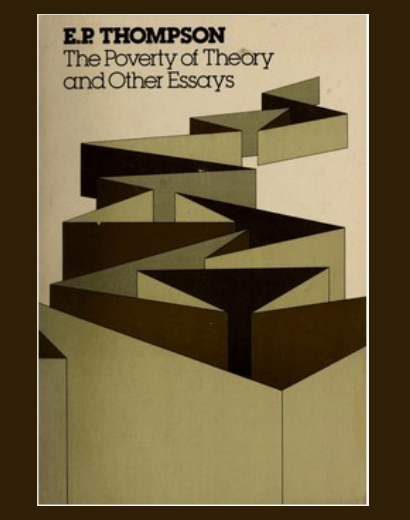
Given the high caliber of the historical scholarship generated by Thompson and company, it makes sense that US labor historians at the time found it inspiring. At the same time, my impression is that the context of that work’s reception in the US was significantly different than in the UK. Of course, not all readers of Thompson et al in the UK were themselves Marxists or socialists, but many were, and as I said the collective project was to a significant degree self-consciously a Marxist and socialist one, often one of trying to figure out an appropriately changed meaning for Marxism and socialism that was apt to mid-twentieth century Britain. There was certainly a robust far left including many Marxists in the US – the Studies on the Left circle springs to mind, as does Radical America and the Mid-Atlantic Radical Historians Organization, as well as the New Communist Movement in the 1970s. I don’t at all mean to dismiss that. At the same time, I get the impression that those left circles had less of a consensus that they were Marxist and socialist in character, and that those left views were less dominant in academic labor history than the analogous – and at least somewhat more narrowly (or perhaps more condensed? compact? robust?) Marxist and socialist – views in the UK.
I’ve already been reductive but to be even more so for the sake of trying to state my point clearly: if we think of all of this as a matter of culture war and long march through institutions, in the UK the left, specifically the Marxist and socialist left, won more battles and marched further than the analogues in the US. At the same time, understanding the cultural battles and long march in the US requires placing more emphasis on more non-Marxist and non-socialist participants in those efforts. If I’m right, then, we have, in part, very simply, and as I’ve already admitted, more than a little reductively, a more Marxist and socialist body of scholarship crossing the ocean to the US and inspiring a less Marxist and socialist body of scholarship. While scholars in the second context admired the work of the UK historians, for whatever reasons – presumably a mix of structure and agency – they didn’t recreate the same sort of context in the US. This is, of course, nowhere near the full story, but it seems to me inarguable that it is one part of the story of labor history in the US.
I want to be clear as it’s easy to be misunderstood here. I am not doing any of the following: dismissing the contributions of non-Marxist historians, suggesting that there are or have been no Marxist and socialist historians in the US, pretending Marxists all agree with each other, overstating the political importance of academic scholarship, nor claiming that any specific political perspective has a monopoly on the writing of good history. What I am trying to do, in part, is very simply to draw out a little more explicitly the fate of Marxism as a perspective within labor history in the US, or maybe better put, to try to map the terrain a little more. I do so not least because I’m a Marxist, specifically one who thinks other people should also be Marxists, in part because the Marxist tradition offers people valuable intellectual resources, and because I’m a labor historian, who thinks the vision and values of our field matter – ours is to an important degree an engaged field, at least in its values – and who thinks that Marxism well serves that vision and those values, and further that many Marxists don’t read enough history scholarship. Marxists must be fully present in our subfield and take the space to talk explicitly about these matters.
I say this knowing full well that there are Marxist labor historians, and one can be a respected labor historian as a Marxist. It feels, I don’t know, vulgar, to say this but I’m one and my book won a big prize in labor history. Gabriel Winant is another recent example. There are many others. We’re not in short supply. We are, if I may, more than a little disorganized, however, in a way that I think makes us sum up practically to less than our actual numbers, so to speak. Furthermore, and I think this is another area where the UK comparison is generative, I suspect that us Marxists in US labor history generally got our Marxism outside the field, prior to and/or in parallel with our education in labor history. As part of this, we have had to work through how being Marxists and being historians relate to each other (in my own case, for many years I thought of myself as a Marxist and activist whose day job happened to be being a historian). We often do that working alone, as well, or at least in snippets of time in small collective spaces – email threads, chats in hotel bars – that are sidelined by the more official collective spaces of our profession.
It may sound like I’m contradicting myself, since if there are Marxist US labor historians that means there are Marxist works of US labor history, so an education in US labor history may well include learning some Marxism. In that case, how can it be true that many Marxist labor historians got the kind of split education I mentioned: Marxism from one set of sources and labor history from another? That would be a fair counterpoint to what I’ve said but what I mean is that I think the setting matters. A community with some Marxists, where our institutions permit Marxist perspectives and socialist politics, is one thing. A community where Marxists and socialists set the agenda and are largely writing for each other to advance Marxist thought and socialist perspectives is another. That feels clumsily put, let me try again. What I mean to suggest is that for a time in the UK to some degree the same set of institutional practices, including but not limited to, academic publishing, served the development of labor history and of Marxist and socialist intellectual life and served to socialize scholars into all of the above as a single albeit multifaceted process. In the US on the other hand, many of us came to our grasp of history in academic circles and came to our Marxism in movement circles and reading works by non-historians. (This isn’t unique to Marxists, of course. Chad Pearson read a draft of this essay and reminded me of this. As he put it, “there has always been a close relationship between activism and scholarship. Good studies of slavery came, in part, from activist participation in the Civil Rights movement. One can say the same about activists involved in women’s rights struggles.” Generalizing a little, I think we can say that all political positions and analytical frameworks sidelined by the dominant political common sense will tend to be simultaneously disorganized and diluted to some degree within the profession and enriched by activist efforts to change the world.)
I will admit, as readers can probably tell anyway, I have a hunch that the UK context as I’ve characterized it – a cohort of Marxist intellectual self-consciously writing Marxist work to advance Marxism – is better, but I don’t know how to defend that hunch. It’s also a hunch I have real doubts about. Maybe this is just my own romantic radicalism, nostalgic for a falsified image of a past moment in the left. Maybe the relative split I’ve suggested exists for Marxist historians in the US is actually for the better, not least because it means our uptake of Marxism is tied at least to some degree to active political projects and related aspirations lived out by activists with some skin in the game. That can be grounding, I think. Either way, whether for better or worse, we are where we are. My main aim here is to try to clarify that – I am actively asking, comrades and fellow travelers, is this where we are? – with the thought if we better know our present location then we can better plan where we want to get to, and how.
I don’t have much of a conclusion. On low energy days – which are common in such depleting times – I just want more people in the field to talk about these matters more, for our colleagues to acknowledge them more. On higher energy days, whether from hope or anger, I want more polemical argument about these matters – if people outside labor history will already dismiss our field as a home to romantic radicals, if those of us doing political economy as a form of labor history are only really of interest to Marxists anyway, then why don’t we push collectively and advocate for our Marxism more stridently as a superior alternative to the “wide presence of liberalism” that limits both scholarly and activist imagination, and collectively develop a Marxism better suited for that task?
Of course, if we did so I think we’d soon find several results. One is that we’d discover many pre-existing disagreements among the Marxists in our field (put four Marxists in a room and ask them a question, you’ll get five opinions, unless it’s a question about Marx, then you’ll get ten), and we’d set off new ones. All that would likely be at first exasperating but then become generative, since the intellectual history of Marxism is to a significant degree a history of intellectual development through dispute conducted within a common set of values and analysis, all which there is often too little of in the academy. Another result is that we’d come to some greater clarity about why it matters if people identify as labor historians. My own answer is that how we identify is related to how we define our object of analysis: for Marxist labor historians, in studying class we are studying something we think can and should be done away with – we hold that a society with classes is necessarily an unjust and oppressive one, and that a classless society is fully possible, even if it doesn’t seem to be coming soon. From that perspective, to be a labor historian in that spirit is partly to state (in the admittedly quiet, civil, and sometimes ineffective tones of an academic) one’s loyalty to that critical vision of past and present and radical vision for the future.
A third result would likely be an increase in active derision from some of our colleagues. At the moment, with Marxism safely contained and anti-systemic movements on the back foot, there is little friction around Marxism. It is easy to accommodate as a matter of personal foibles by individuals who happen to be Marxists – ‘ah yes, interesting’ and the occasional ‘I too am a fan of Harpo and Groucho’ friendly ribbing. That can change, however, and suddenly, in times when socialism again is a threat to the capitalist world order. We can’t simply make that happen by sheer willpower, let alone by doing our jobs as scholars, of course. Still, we do hope to make small contributions to that in the realm of culture, and that is simply what we want to happen. That’s to say, when serious struggle occurs, the jokes, disengagement, and polite dismissals that help contain radical perspectives in the academic at times of low ebb give way to much uglier forms of containment. The ongoing bipartisan-supported repression of students protesting the US-sponsored massacre of Palestinians is a massive and morally urgent case in point, as is the AHA’s Executive Council’s shameful veto of the resolution opposing that massacre.
This two-step of repression paired with media smears and roaring professional silence is not an historical aberration but the predictable pattern of what happens in moments of intense conflict. Toni Gilpin’s remarks in an interview with Fightback News are relevant here. She was talking about the labor movement but the same goes for the socialist left: “once the labor movement gets really threatening (…) favorable media will suddenly turn sour and suddenly all of these media entities that are themselves big businesses will not be too happy about a labor movement that really registers and affects consumers, that affects big businesses, that threatens the courts, and that could affect the printing of the New York Times.” When that happens, the labor movement “will start seeing negative press again. But that’s what we actually want. That would prove that labor is actually back. And that can happen in a heartbeat as it has happened in American history before.” Andrew Feffer’s important book Bad Faith:Teachers, Liberalism and the Origins of McCarthyism is highly relevant on this point as well. So too is the discussion of what Chad Pearson calls “narrative creators” in his urgent work Capital’s Terrorists: Klansmen, Lawmen, and Employers in the Long Nineteenth Century.
One final thought. I think we Marxists in labor history can count on some number of people continuing to be radicalized by life experiences in the many nightmares capitalism generates. Some of those people will become labor historians, some of them Marxists, too. So, it seems likely that we won’t run out of Marxist labor historians altogether. At the same time, simply counting on the inexorable workings of the system to generate our future peers seems unduly pollyannish, and certainly if we got more organized that generating would go better. More importantly, if we believe that our field has some degree of public purpose, that we have responsibilities to the many people living through these nightmares and seeking ways to understand them, and if we believe that the Marxist tradition offers insights that help explain those nightmares and clarify the political tasks involved in confronting then here too it is incumbent on us to get more organized specifically as Marxist labor historians. Certainly, the general direction that higher education is heading now won’t do that for us.
Author
-
Nate Holdren is the author of the book Injury Impoverished: Workplace Accidents, Capitalism, and Law in the Progressive Era (2020). He is employed as an associate professor at Drake University.

